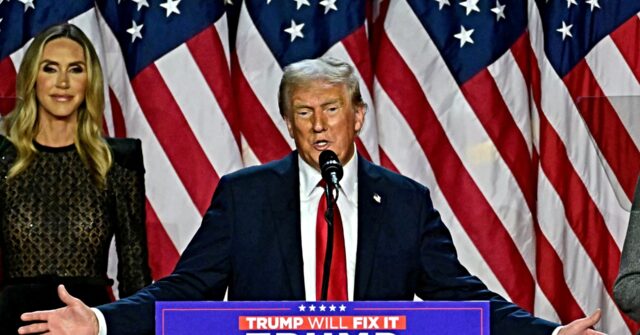The response from The Economist to Donald Trump’s recent election victory highlights deep concerns regarding the potential consequences of a second term in office. The publication, known for its traditionally centrist views, expressed alarm over the destabilizing impact that Trump’s policies could have on America’s economy, institutions, and global relations. In editorials, the magazine characterized a second Trump administration as fraught with “unacceptable risks” and unequivocally stated its preference for Democratic leadership, emphasizing the belief that Trump’s return could have profound implications for the fabric of American democracy and rule of law.
The publication asserted that although Trump may face challenges from Congress, the judiciary, and bureaucratic resistance, there is a substantial risk that he could realize some of the more radical proposals he has in mind. Such realizations, The Economist warned, could spell disaster not only for domestic governance but also for the international order. The sense of urgency and fear in their analysis illustrates a belief that Trump’s presidency could lead to long-term repercussions, jeopardizing the stability of both American institutions and its global standing. The magazine fears that a second term, given the alleged organization and preparedness of Trump’s allies, would pose an even greater threat than his first term.
Trump’s potential economic strategies were another focal point in The Economist’s critique. The magazine described these prospective policies as “much more disruptive,” highlighting anticipated aggressive measures such as significant tariff increases and major tax cuts. The specter of mass deportations was also mentioned, suggesting that these actions would contribute to a labor supply crisis. According to The Economist, these policies could trigger a cycle of market instability, with noted concerns that economic turmoil may not be sufficient to temper Trump’s ambition for change, ultimately asking how much harm his leadership might inflict.
Another pivotal concern raised by The Economist revolves around the potential judicial ramifications of a Trump presidency. The publication posited that a second term could firmly entrench a conservative Supreme Court aligned with Trump’s agenda for an extended period. This entrenchment would not only affect judicial decisions but might also lead to a broader erosion of democratic norms. The editorial cautioned that the ramifications could linger long beyond Trump’s presidency, fundamentally altering the political landscape and diminishing the integrity of American democracy.
The Economist’s commentary also delved into the notion of judicial independence, suggesting that Trump might seek to undermine the autonomy of the Department of Justice. The fears expressed by the magazine included the likelihood of Trump initiating politically motivated investigations against his adversaries, a scenario characterized as a move toward authoritarianism. However, an interesting irony in the narrative lies in the fact that the notion of weaponizing the judiciary has been more prevalent under the current administration, raising questions about the veracity of these claims against Trump.
Overall, the reactions from The Economist underscore a profound anxiety surrounding the implications of a second Trump term for both the United States and the world at large. The magazine’s critiques illustrate a belief that the challenges posed by Trumpism are not merely transient but could represent a significant shift in the governance and operational frameworks of American institutions. This sentiment, coupled with the publication’s historic stance on policies related to democracy and governance, suggests that the landscape of post-election America may herald significant changes, prompting discourse on the future trajectory of the nation and its democratic values. In summary, the perspective offered by The Economist serves as a clarion call to consider the multifaceted impacts of Trump’s electoral success on the potential for democratic resilience and economic stability.

